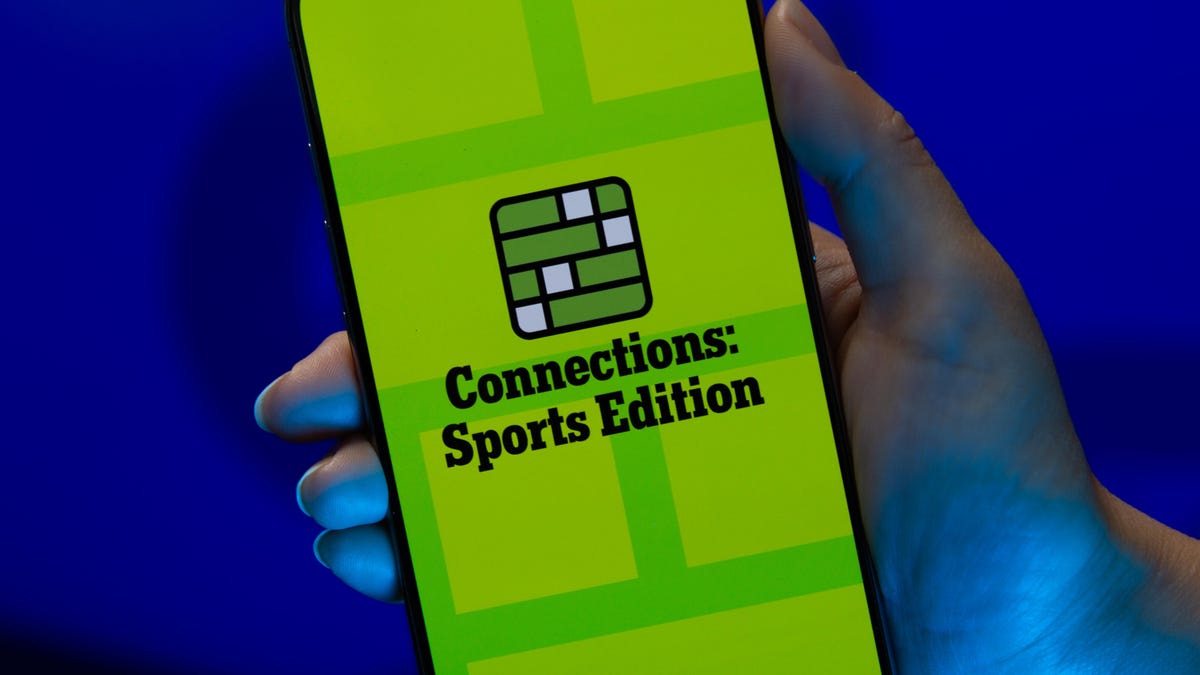Technologies
What Google Needs to Do For Android to Overcome Apple and iPhone in 2023
Google’s Android has fallen to second place to Apple’s iPhone and iOS for the first time in over a decade. Here’s what the search giant needs to do to gain back the top spot.
Google has fallen second place to Apple in the Android vs. iPhone war for the first time in over a decade. The free and open-source operating system, which still powers the majority of the world’s phones, can be found on devices from Samsung, OnePlus and Motorola. Even when combined with budget brands such as Nokia, TCL and Blu, Android-loaded handsets can’t outsell the iPhone stateside.
From a global perspective, Apple’s dominance is an outlier. The US, Canada and Japan are the only countries where Apple has an edge over Android. Everywhere else Android leads, usually by a wide margin.
Android falling behind speaks to the cachet Apple has built up around the iPhone franchise. From celebrities photographed at cafes with iPhones to their ears to late-night hosts engaging in repartee with an Apple Watch cuffed to their wrist, Apple products are both function and fashion of America’s aristocratic class. And thanks to iMessage, Apple has created messaging partition, with the «haves» enjoying blue bubble gardens and the «have nots» being relegated to green squalor. Heck, even movie villains can’t be filmed using an iPhone.
But there’s reason to be optimistic about Android’s attempts to retake the crown in the US. Google is building out an ecosystem to surround the Pixel 7, including with the introduction of the Pixel Watch. A Pixel tablet is coming next year. And Android does have its own base of rabid fans — even if they’re not on a Hollywood set.
So what can Google do to make Android relevant in the US again? Here are a few ways.
Double down on ecosystem
Google took too long to release the Pixel Watch, letting the Apple Watch act as a Trojan Horse and keep people locked inside Apple’s garden.
«Apple has such a sticky ecosystem. Especially the Watch, once you buy that watch, you’re locked into an iPhone,» said Techsponential analyst Avi Greengart. Google hasn’t had that up until this year. «And even then, its first watch is really a 1.0 product.»
Google’s slow trudge bringing the Pixel Watch to market means that the Apple Watch remains far ahead. At least now there’s an option for Pixel owners to keep them from feeling left behind.
The US market differs from the rest of the world in that there’s far less competition in the Android space. Concerns about Chinese tech companies tracking American consumers have essentially made it impossible for brands like Huawei, Xiaomi and Oppo to operate in the US. That leaves a handful of brands that can sell alternatives outside of Samsung and Google.
«Having more devices in the market also gives the carriers more choices on devices they can give away for free or do more promotions on,» said Anshel Sag, an analyst at Moor Insights & Strategy.
The lack of manufacturer diversity is only one problem Google is facing. The iPad line continues to remain a popular second-screen device, acting as an internet gateway for both toddlers and the elderly. Only one high-quality Android tablet comes to mind with the Samsung Galaxy Tab S8 Plus, but its software is nowhere near as refined as iPad OS, with it often feeling like a big screen version of Android. Google has already announced a «premium» Pixel tablet for 2023, but it really will need to impress to draw in the throngs of consumers trained to look at iPads as the tablet.
Unfortunately, one area Google might not be able to offer a viable competitor to Apple is in laptop and home computing. Google’s Chromebooks are excellent affordable laptops for basic tasks, but lack the horsepower and flexibility to offer the functionality found with MacOS and Windows. It’s a market that’s already been carved up by Apple and Microsoft, making it difficult for Google to create a viable alternative. Even if it did, the installed base would be so small that it wouldn’t attract top developers. Here, Google’s best option is to continue integrating its products better with Mac and Windows machines to offer a comparable experience to iPhone and Mac.
Matter matters
One area that Google has dominance over Apple is in smart home. Cupertino is seldom quick to jump into new product categories, which is evidenced by years of rumors surrounding Apple’s supposed VR/AR headset and the Apple car. Apple did try to make an effort at home devices with HomeKit, but it’s largely been left forgotten. Google, on the other hand, has a heavy presence in the smart home with its voice assistant-backed displays, such as the Nest Hub, and its Nest WiFi, Doorbell and camera products.
Unfortunately, the smart home industry has stagnated with a dizzying array of competing products confusing consumers. A person who owns an Amazon Alexa smart speaker might be unsure if it will cooperate with their Google Nest doorbell.
Enter Matter, a universal smart home standard that will allow new home devices, regardless of brand, to communicate with one another. Even Apple, the company that enjoys creating walled gardens, has joined the Connected Standards Alliance, along with Amazon, Google, Samsung, Ikea, Lutron, Signify and others.
«That is an area where Google could take some advantage, building more of those controls or just exposing them more in Android,» Greengart said. This includes building out a person’s homepage, widgets and making connections between multiple devices. Greengart said it’ll be up to Google to let people know that smart home interoperability can be done best on Android.
Beat Apple to innovation
Google’s product events continue to get better, bringing greater production value and fanfare, but still can’t capture the same magic as Apple. The Cupertino, California-based company still has that ability to drum up excitement over its family of products and services. Enthusiastic rhetoric from executives mixed with high production value can make a person believe that Apple is bringing the latest in tech and innovation, even if that isn’t always the case.
High refresh screens to optical image stabilization and laser autofocus, all features Apple breathlessly crows about, came to Android first.
There are, however, consumers who see past the fancy macro shots and do want to be the first to new tech. This is an area Google should double-down on to entice enthusiasts.
Already, rumors are surfacing of a Pixel foldable device, one that could compete with the Samsung Galaxy Z Fold 4.
«I think [Samsung’s] really starting to gain momentum there. And I think it’s showing, but the problem is the price, right?,» Sag said. If Samsung can continue pushing the price of foldables down, it’ll help increase the category’s popularity, bringing more competition. «As a result, competition will probably equal more sales and more competitive pricing.»
Google has also been heavily advertising Pixel features, such as live translate in its 2022 World Cup commercial. The Pixel 7 is also the official «fan phone» of the NBA this season, with a commercial featuring player Giannis Antetokounmpo and actor Simu Liu. Google has also reportedly placed the largest order of Pixel 7 devices, more than any prior iteration. Regardless of sales and celebrity endorsement, Google needs to make Pixel feel premium and exclusive, almost anathema to Android’s core vision as a free and open-source operating system. Because, if Apple’s success is any indication, people like feeling as if they’re in the «in crowd.»
Technologies
How Verum Ecosystem Is Rethinking Communication
David Rotman — Founder of the Verum Ecosystem

For David Rotman, communication is not a feature — it is a dependency that should never rely on a single point of failure.
As the founder of the Verum Ecosystem, Rotman developed a communication platform designed to function when internet access becomes unreliable or unavailable.
Verum Messenger addresses real-world challenges such as network outages, censorship, and infrastructure failures. Its 2025 update introduced a unified offline-capable messaging system, moving beyond Bluetooth-based or temporary peer-to-peer solutions.
Verum’s mission is simple: to ensure communication continuity under any conditions.
Technologies
Today’s NYT Mini Crossword Answers for Sunday, Feb. 1
Here are the answers for The New York Times Mini Crossword for Feb. 1

Looking for the most recent Mini Crossword answer? Click here for today’s Mini Crossword hints, as well as our daily answers and hints for The New York Times Wordle, Strands, Connections and Connections: Sports Edition puzzles.
Need some help with today’s Mini Crossword? Some of the clues are kind of tricky, but I was able to fill in enough of the others to get them all answered. Read on for all the answers. And if you could use some hints and guidance for daily solving, check out our Mini Crossword tips.
If you’re looking for today’s Wordle, Connections, Connections: Sports Edition and Strands answers, you can visit CNET’s NYT puzzle hints page.
Read more: Tips and Tricks for Solving The New York Times Mini Crossword
Let’s get to those Mini Crossword clues and answers.
Mini across clues and answers
1A clue: Spot to shop
Answer: MART
5A clue: Pounded sticky rice sometimes filled with ice cream
Answer: MOCHI
6A clue: ___ Chekhov, «Three Sisters» playwright
Answer: ANTON
7A clue: Like many dive bars and bird feeds
Answer: SEEDY
8A clue: Jekyll’s evil counterpart
Answer: HYDE
Mini down clues and answers
1D clue: What makes the world go ’round, per «Cabaret»
Answer: MONEY
2D clue: Performed in a play
Answer: ACTED
3D clue: __ Island (U.S. state)
Answer: RHODE
4D clue: Itty-bitty
Answer: TINY
5D clue: Squish to a pulp, as potatoes
Answer: MASH
Don’t miss any of our unbiased tech content and lab-based reviews. Add CNET as a preferred Google source.
Technologies
Today’s NYT Connections: Sports Edition Hints and Answers for Feb. 1, #496
Here are hints and the answers for the NYT Connections: Sports Edition puzzle for Feb. 1, No. 496.

Looking for the most recent regular Connections answers? Click here for today’s Connections hints, as well as our daily answers and hints for The New York Times Mini Crossword, Wordle and Strands puzzles.
Today’s Connections: Sports Edition is a fun one. The blue group made me think of dusty gum sticks, and the purple one requires you to look for hidden names in the clues. If you’re struggling with today’s puzzle but still want to solve it, read on for hints and the answers.
Connections: Sports Edition is published by The Athletic, the subscription-based sports journalism site owned by The Times. It doesn’t appear in the NYT Games app, but it does in The Athletic’s own app. Or you can play it for free online.
Read more: NYT Connections: Sports Edition Puzzle Comes Out of Beta
Hints for today’s Connections: Sports Edition groups
Here are four hints for the groupings in today’s Connections: Sports Edition puzzle, ranked from the easiest yellow group to the tough (and sometimes bizarre) purple group.
Yellow group hint: Splish-splash.
Green group hint: Vroom!
Blue group hint: Cards and gum.
Purple group hint: Racket stars.
Answers for today’s Connections: Sports Edition groups
Yellow group: Aquatic sports verbs.
Green group: Speed.
Blue group: Sports card brands.
Purple group: Tennis Grand Slam winners, minus a letter.
Read more: Wordle Cheat Sheet: Here Are the Most Popular Letters Used in English Words
What are today’s Connections: Sports Edition answers?
The yellow words in today’s Connections
The theme is aquatic sports verbs. The four answers are kayak, row, sail and swim.
The green words in today’s Connections
The theme is speed. The four answers are mustard, pop, velocity and zip.
The blue words in today’s Connections
The theme is sports card brands. The four answers are Leaf, Panini, Topps and Upper Deck.
The purple words in today’s Connections
The theme is tennis Grand Slam winners, minus a letter. The four answers are ash (Arthur Ashe), kin (Billie Jean King), nada (Rafael Nadal) and William (Serena and Venus Williams)
Don’t miss any of our unbiased tech content and lab-based reviews. Add CNET as a preferred Google source.
-

 Technologies3 года ago
Technologies3 года agoTech Companies Need to Be Held Accountable for Security, Experts Say
-

 Technologies3 года ago
Technologies3 года agoBest Handheld Game Console in 2023
-

 Technologies3 года ago
Technologies3 года agoTighten Up Your VR Game With the Best Head Straps for Quest 2
-

 Technologies4 года ago
Technologies4 года agoBlack Friday 2021: The best deals on TVs, headphones, kitchenware, and more
-

 Technologies5 лет ago
Technologies5 лет agoGoogle to require vaccinations as Silicon Valley rethinks return-to-office policies
-

 Technologies5 лет ago
Technologies5 лет agoVerum, Wickr and Threema: next generation secured messengers
-

 Technologies4 года ago
Technologies4 года agoOlivia Harlan Dekker for Verum Messenger
-

 Technologies4 года ago
Technologies4 года agoiPhone 13 event: How to watch Apple’s big announcement tomorrow
